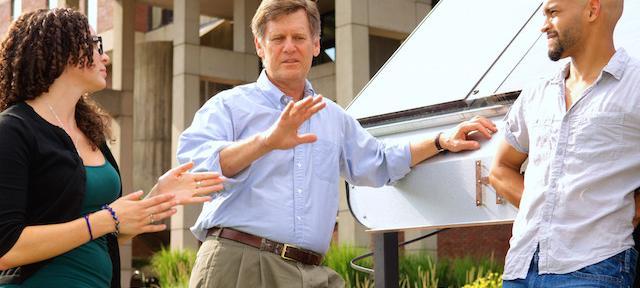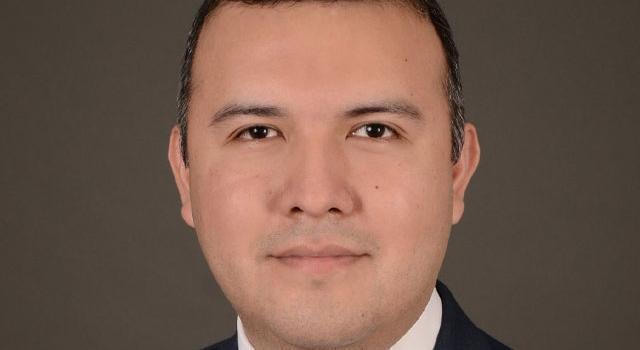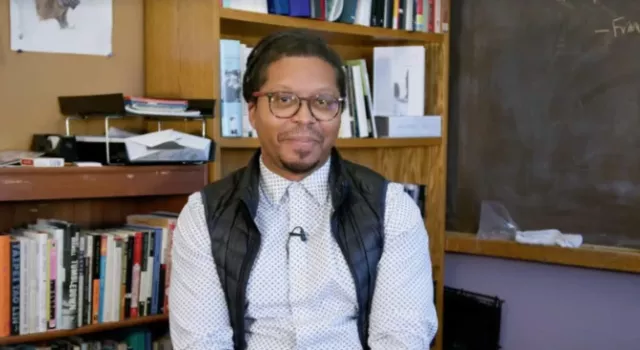Trustees Establish Environmental Professorship to Honor Jonathan Lash Presidency

To honor Jonathan Lash’s tenure as Hampshire’s sixth president and lifetime of service to the global environmental movement, the board of trustees has established the Jonathan Lash Endowed Chair in Environmental Education and Sustainability. Environmental ethics and justice will be the primary focus for inquiry and teaching.
The trustees set a goal to fund the chair with $2.5 million in private gifts. To date more than $2.1 million has been raised. The board has worked with the Academic Affairs division to create the endowed position, to advance study in behavioral sciences and make progress against global environmental issues. The faculty member will be based in the School of Cognitive Science to ally the hard sciences and social sciences — such as behavioral, conservation, and environmental psychology — including environmental ethics and justice. The job will require active research, the mentoring of students engaged in independent research, and forming collaborations with peers and partners from the Five Colleges and beyond. [Learn more about giving to the fund.]
Lash announced in February that he will retire in June, at age 72, following his seventh year in office. After recovering from a serious illness and being out on medical leave in the spring semester, he said he looks forward to having time in retirement with his wife, Ellie, and their family.
Lash was named the sixth president of the College in 2011, joining Hampshire as an internationally recognized expert on global sustainability, climate change, and environmental challenges and solutions. He has been recognized by two U.S. presidents, who appointed him to serve on a national environmental council and commission.
The endowed chair will strengthen Hampshire’s longstanding leadership in environmental studies. Faculty launched the College’s first formal environmental studies program in 1971, a year after Hampshire was founded, calling it the Environmental Quality Program. In 1978, Professors Lorna Coppinger and Ray Coppinger documented the creation of the program in their chapter titled "The Agricultural Liberal Arts," from the book Fields of Learning: The Student Farm Movement in North America.
In recent years, courses created by faculty include:
- China Rising: Reorienting the 21st Century
- Exploring Amazonia: The Scientific Inquiry of a Region
- Rivers of Life and Death n Population and the Environment
- Ocean and Human Protection in the Age of Climate Change
The new professorship will prepare students to become educators, scientists, activists, policymakers, and leaders for change across policy, research, and practice.
Lash Term Marked by Advances for Hampshire
Lash has steered Hampshire through a period of significant advancement. He recommitted the College to pursuing its founding principles: put ideas into action, engage students and faculty in critical social issues, and be a force for positive change in the world. During Lash’s term, Hampshire:
- Reoriented admissions strategy to more accurately enroll students likely to thrive here, and retooled financial aid to support them with need-based funds. Hampshire was the first U.S. institution not to accept SATs and ACTs, citing the tests do not predict who will excel at the College and are biased against low-income families.
- Significantly increased the diversity of its student body, faculty, and board of trustees and made advances in being an intentionally antiracist community.
- Attracted increased philanthropic investment.
- Strengthened academic affairs by new professorships and the creation of several innovative programs, such as Ethics and the Common Good and Entrepreneurship, and expanding the educational and operational role of the Hampshire College Farm. During Lash’s tenure, the Mellon Foundation awarded Hampshire $1.2 million to re-configure its library as a “knowledge commons” centralizing a range of academic services.
- Become a national environmental leader by developing sustainability programs and campus infrastructure supported by more than $10 million in grants.
Lash is also president of the Board of Directors of Five Colleges, Inc., and works collaboratively with leaders of Hampshire’s partner consortium institutions: Amherst, Mount Holyoke, Smith and UMass Amherst. His essays and ideas on improving education have been published by such media as Education Week, The Washington Post, The Hechinger Report, and Money magazine, extending Hampshire’s influence in higher education. [Read his HuffPost blog.]
Global Environmental Leadership
Prior to Hampshire, Lash was president of the World Resources Institute, a Washington-based environmental think tank. Under his leadership, the organization quadrupled its budget and globalized its work, with offices in eight nations and partners in more than 50 countries. While in that role, in 2010, he was appointed by President Barack Obama to serve on the Blue Ribbon Commission on America’s Nuclear Future.
Previously, from 1993 to 1999, he cochaired the President’s Council on Sustainable Development, a group of public- and private-sector leaders appointed by Bill Clinton. Lash played a key role in the creation and success of the U.S. Climate Action Partnership and its highly influential “Call to Action” on global warming.
He began his legal career as a federal prosecutor and later became senior staff attorney for the Natural Resources Defense Council (NRDC). He was lead author of A Season of Spoils: The Reagan Administration’s Attack on the Environment published in 1984, detailing how President Reagan chose business advocates to lead environmental policy for his Cabinet, a decision that ended in controversy and resignations.
Lash was named Vermont Commissioner of Environmental Conservation in 1985; in 1987 was appointed Vermont Secretary of Natural Resources. In 1990, he was appointed director of the Environmental Law Center at Vermont Law School.
He received his AB from Harvard College and upon graduation joined the Peace Corps, where he met and married Eleanor Scattergood, a fellow volunteer. Together they worked on community-based development projects in the Dominican Republic; then returned to the US to train Corps volunteers. He earned an MEd and JD from Catholic University. Read his full bio.



